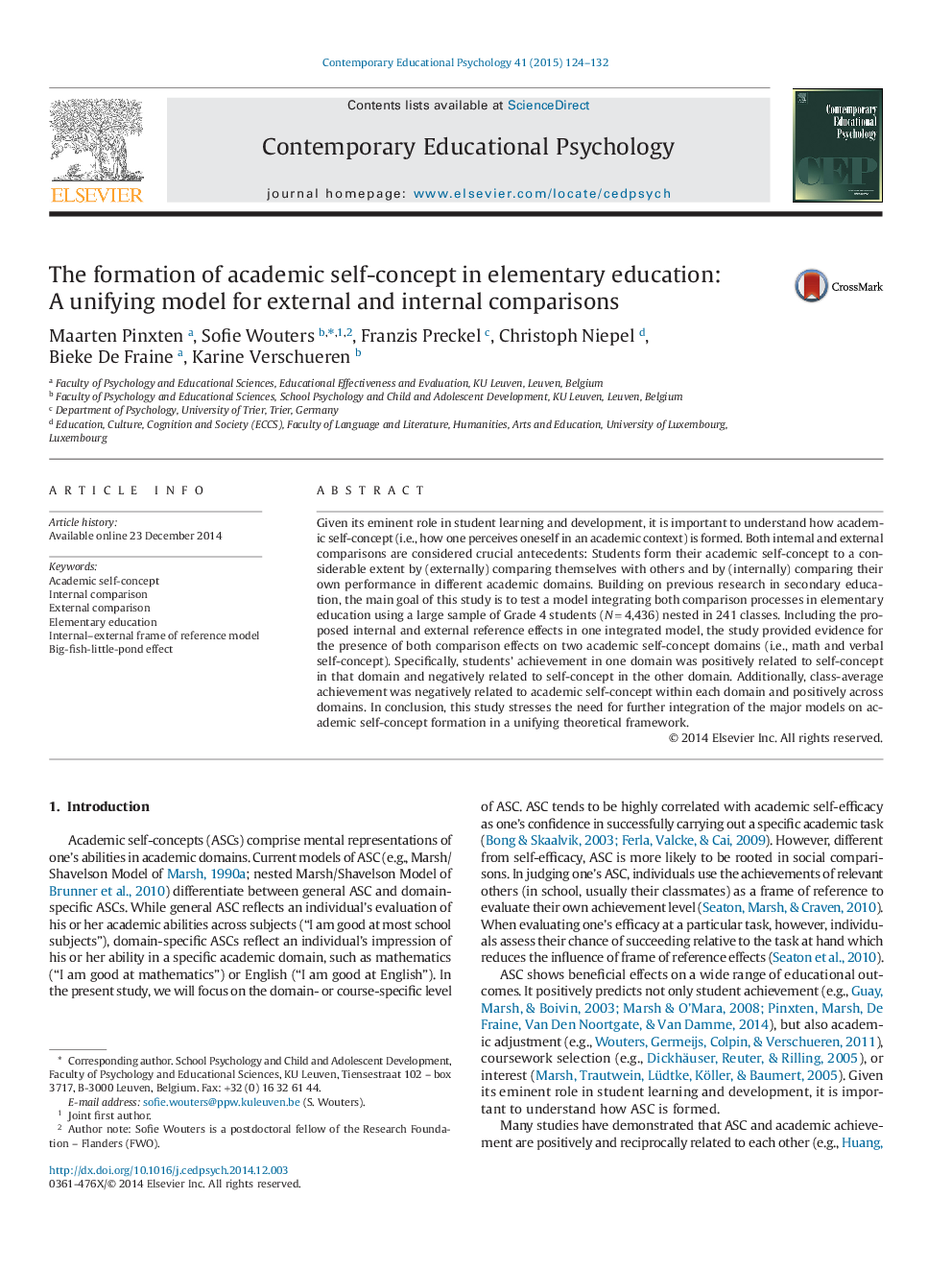ترجمه فارسی عنوان مقاله
تشکیل خودپنداره علمی در آموزش ابتدایی: مدل واحد برای مقایسه خارجی و داخلی
عنوان انگلیسی
The formation of academic self-concept in elementary education: A unifying model for external and internal comparisons
| کد مقاله | سال انتشار | تعداد صفحات مقاله انگلیسی |
|---|---|---|
| 61822 | 2015 | 9 صفحه PDF |
منبع

Publisher : Elsevier - Science Direct (الزویر - ساینس دایرکت)
Journal : Contemporary Educational Psychology, Volume 41, April 2015, Pages 124–132
ترجمه کلمات کلیدی
خودانگاره علمی ؛ مقایسه داخلی؛ مقایسه خارجی؛ تحصیلات ابتدایی؛ مدل داخلی و خارجی
کلمات کلیدی انگلیسی
Academic self-concept; Internal comparison; External comparison; Elementary education; Internal–external frame of reference model; Big-fish-little-pond effect

